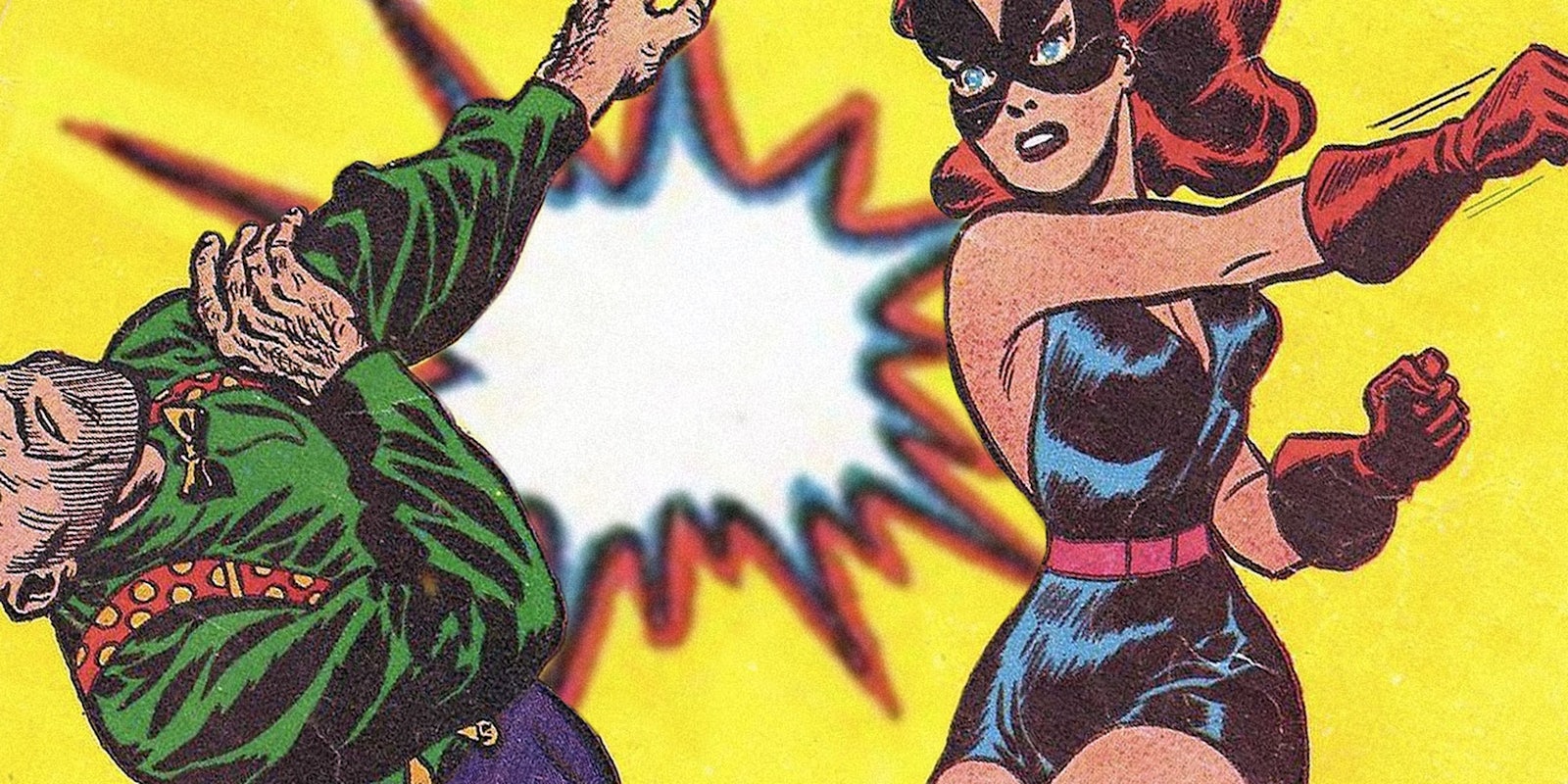With superhero movies so obviously dominated by men—bat men, iron men, super men, spider men—it’s no wonder that fans were overjoyed when Wonder Woman was announced. That parade of super-dudes was getting kind of monotonous. But what about previous efforts? With characters like Black Widow starring in billion-dollar blockbusters, are things really so bad?
For a quick and easy answer, we turned to that popular arbiter of sexism on film: the Bechdel Test. To pass this test, a movie must include:
- Two named female characters…
- who talk to each other…
- about something other than a man.
Judging with these criteria, we took a look at every major superhero franchise since X-Men came out in 2000.
(See a bigger version of this chart by clicking here.)
A few of the Bechdel successes are obvious. Catwoman and Elektra both had female protagonists, meaning they were pretty much a shoo-in. The X-Men franchise also does well, due to its multiple female characters, although the most recent movie was a disappointment. After making Rogue and Jean Grey central characters in earlier films, Days of Future Past shunted all of its women into undeserved secondary roles.
Unsurprisingly, Bechdel failures tend to focus on male protagonists. Most scenes revolve around the hero, and since the vast majority of supporting characters are men, there are very few chances for two women to get together and have a conversation. Christopher Nolan’s Dark Knight trilogy is particularly bad in this respect, apparently taking place in an alternate universe where 80 percent of the population is male.
Looking at the box office draw for each of these movies, there isn’t much correlation between Bechdel results and financial success. True, Catwoman and Elektra both flopped, but they both got terrible reviews and, in the case of Elektra, focused on obscure characters with a small promotional budget compared to behemoths like Superman. Other Bechdel-passing films like Thor and Guardians of the Galaxy actually beat their contemporaries at the box office.
The Bechdel Test is a simple tool, so a pass or fail doesn’t always mean a film is less or more “feminist.” For example, Catwoman is widely regarded to be a total disaster on all fronts, while there are movies like Captain America: The Winter Soldier that don’t quite pass the test, but featured multiple women in well-written and prominent roles.
Still, unless there’s a sensible explanation for the lack of women—say, the entire film only has two characters in it, or everything takes place on a 19th century naval vessel—then failing the Bechdel test is a blatant sign of lazy, sexist writing. For films like Spider-Man, Batman, and The Avengers, all of which have extensive supporting casts, there’s really no excuse for having so few women in speaking roles.
Illustration and infographic by Land & Sea Co.

